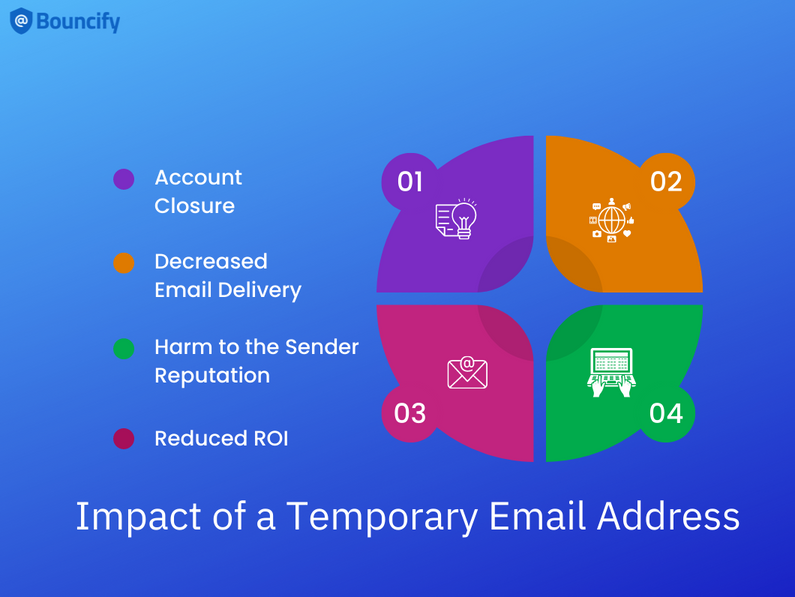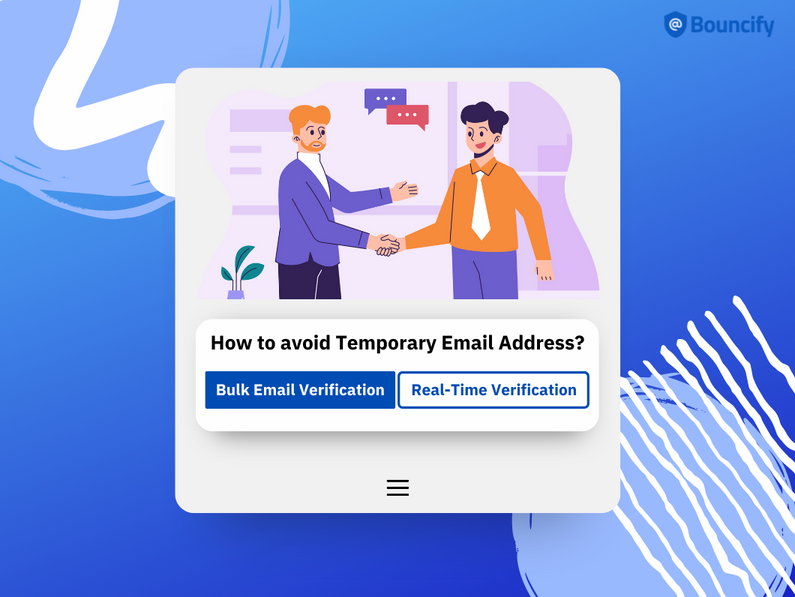Temporary Email

Temporary or "disposable" e-mail addresses are very useful to users that allow them to test the service, sign up for newsletters or subscribe to promotional sites without providing their email.
This type of email address is commonly used by users to sign up for a service, download an eBook, access special offers, or register on a website without disclosing their personal data.
Temporary email addresses are those that expire after a certain time. Temporary email addresses only allow a limited number of messages to be received with limited storage and expire after a period of inactivity.
It is a service that enables users to receive emails at a temporary email address that expires after a set amount of time is known as temporary email. It is also known as throwaway email, free email, disposable email, or self-destructing email. When people wish to utilize an email account without disclosing their name or personal or professional email address, they create them.
The following situations are the most typical uses for temporary email addresses:
- While creating a social networking account
- Utilising the free advantages of first-time registrations
- Content downloading
- Promotional offers
- Contest participation
When temporary emails are used to hide identities to spam, troll, or hurt individuals in any other manner, they are sometimes referred to as dark emails.
Trust can be another important factor that a user may feel about your website’s credibility.
Here is a detailed study on Forbes about, How to get customers to trust your site.
However, for us email marketers, temporary addresses can be a real headache, affecting our ability to deliver newsletters and impacting our budget.
Impact of a temporary email address on your email marketing campaign :
You work hard to compose and design an email but it does not get to the user because of the email's data quality, it is upsetting.
Highly accurate email verification is a must for running a successful email marketing campaign. There are several programs available that make it simple to create fictitious or temporary emails; not considering email verification might result in-
Account Closure
Sending emails to rogue or transitory addresses might hinder your capacity to send emails in the first place. Your Email Service Provider (ESP) may suspend your account if you receive too many bounces, spam complaints, or unsubscribes to comply with ISP requirements, email protection standards, and other anti-spam groups.
Decreased Email Delivery
Temporary email accounts are often made for single use only, after which the owner either ignores or deletes them. Therefore, the only place the email address is now found is in your database, which you intend to utilize for future marketing.
As a result, the deliverability rate of your campaign will be poor, and the ESP you are using will charge you for email addresses that are no longer valid. It's a defeat for both teams!
Harm to the Sender's Reputation
The IP address used to send the emails, the reputation of the domain, authentication of the sender policy framework (SPF), current and average bounce rates to date, engagement rate, subscriber complaints, and spam traps on your subscriber list, if any, all contribute to the sender reputation.
Sending emails to temporary email addresses lowers the sender's reputation by decreasing the engagement rate and the domain reputation.
Reduced ROI
Email service providers base their price models, as was already said, on the total number of users across all lists; therefore, maintaining a large list in the system can frequently be a waste. Disposable, duplicate, invalid, and catch-all email addresses are all charged to you as well!
Since the prospect cannot be reached, future sales are not conceivable, and you are also being paid for the same, the return on investment decreases by two times the rate.

How to avoid Temporary Email Addresses -
Email verification, which may be carried out in bulk or in real-time through an API connection, is a routine examination of the condition of email lists and email databases.
One may find domains used by throwaway email services like 10minutemail, Maildrop, Throwaway Mail, and any other network by using a very accurate email verifier like Bouncify. You are shielded against anyone attempting to utilize such emails by regular use.
What should you do?
Email verification is a periodic check of email list/email database status that can be performed in bulk or real-time via API integration.
Using a highly accurate email verifier like Bouncify you can detect domains used by temporary email providers like Fakemail, 10minutemail, Maildrop, Throwaway Mail, and every other network out there. Consistent use protects you from someone trying to use such emails.
Bulk Email Verification:
It's easy, you just have to sign up for Bouncify and buy the credits that never expire.
Email addresses can be verified either by uploading the sheet or by importing from the ESP/CRM used. Not only disposable but also can inspect other dangerous emails.
Real-Time Verification:
Try Bouncify Email Verification API to determine if a domain or email address is associated with temporary email address generators at the time of capture on any form or landing page.